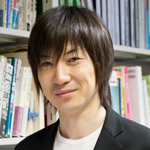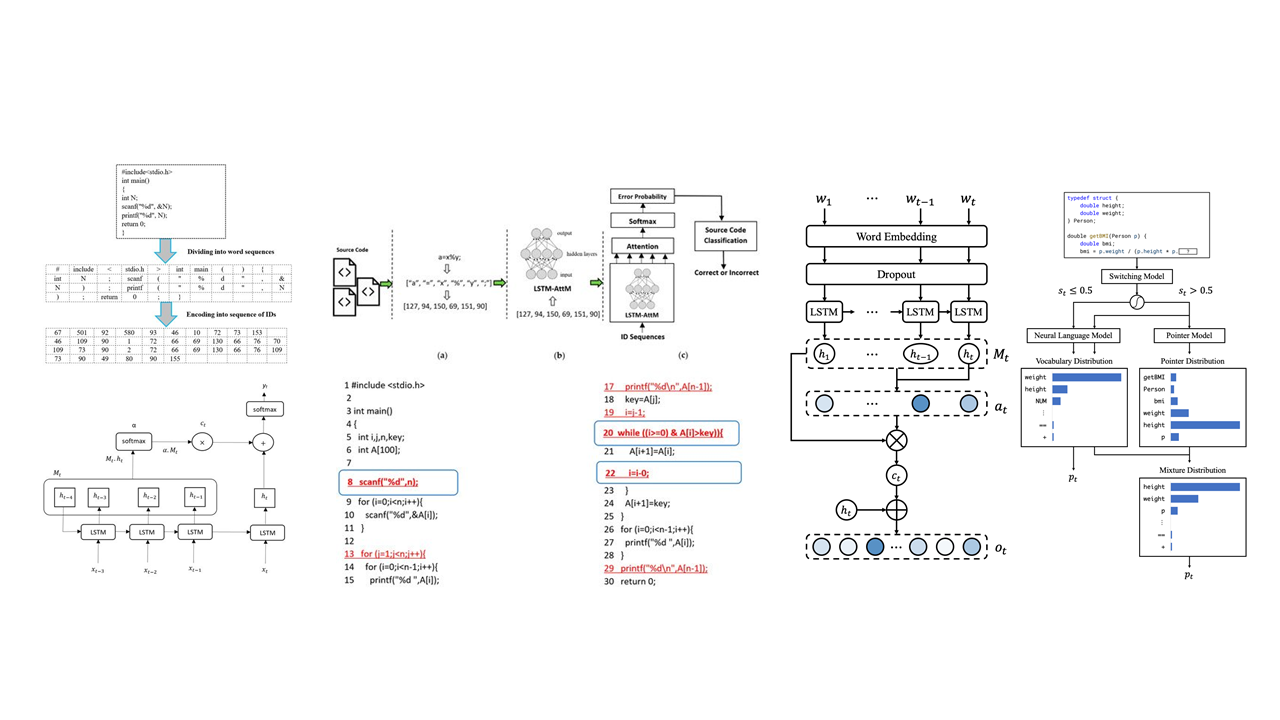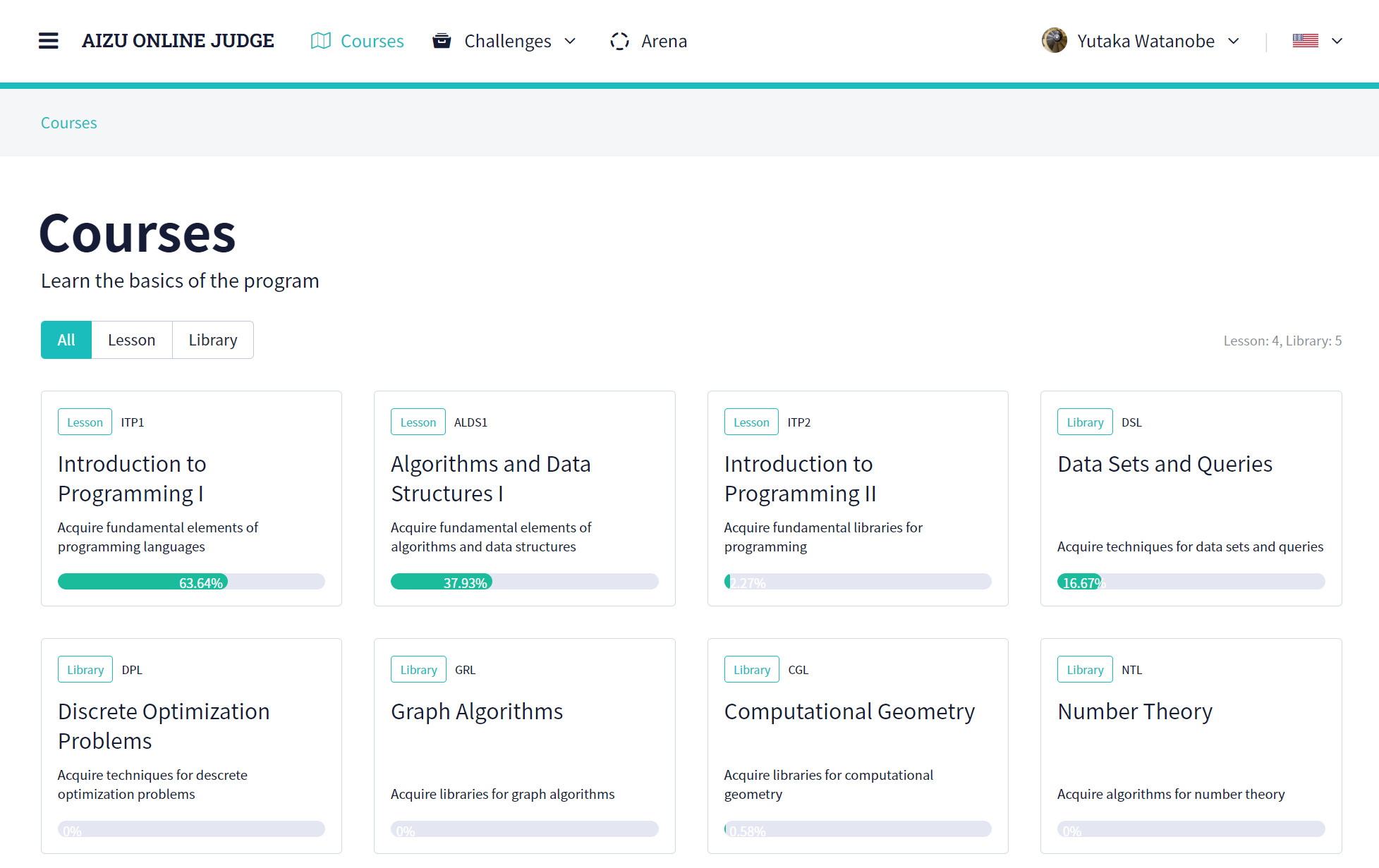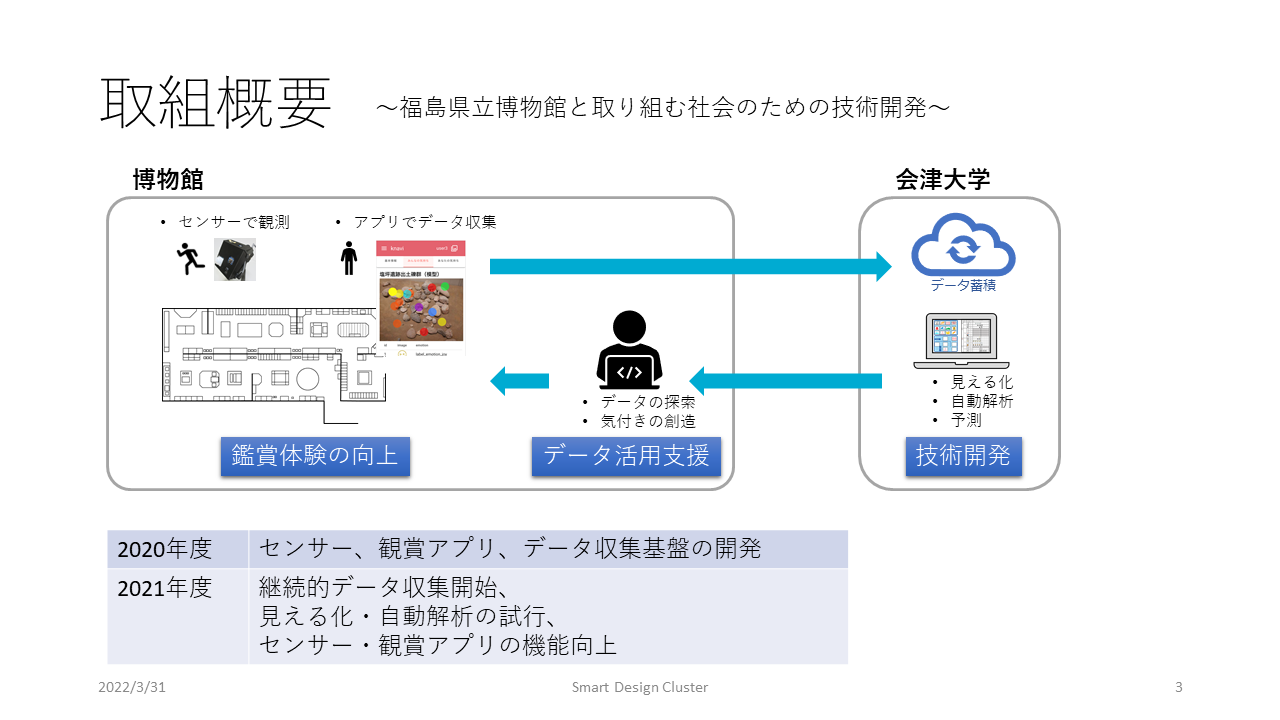
WATANOBE Yutaka
Professor
- Affiliation
- Department of Computer Science and Engineering/Division of Information Systems
- Title
- Professor
- yutaka@u-aizu.ac.jp
- Web site
- http://www.u-aizu.ac.jp/~yutaka/
Education
- Courses - Undergraduate
- Algorithms and Data Structures (Coordinator)
Programming Java I (Coordinator)
Advanced Software Engineering (Coordinator)
Lectures for Information Technology Engineer Examination (Coordinator)
Preparation Lecture for Programming Contests (Hornor's program)
Competitive Programming (SCCP)
Practical Programming (SCCP)
Artificial Intelligence (Machine Learning) Applications I (External Lecturer)
Artificial Intelligence (Machine Learning) Applications II (External Lecturer)
- Courses - Graduate
- Advanced Data Structures and Algorithms
Software Engineering
Programming Strategies and Software Development Tools
Research
- Specialization
-
Theory of informatics
Software
High performance computing
Soft computing
Learning support system
Software Engineering, Programming, Smart Searvices, Innovative Education
- Educational Background, Biography
- JSPS Research Fellow PD Assistant Lecturer, University of Aizu Associate Professor, University of Aizu
- Current Research Theme
- Key Topic
- Visual Programming, Machine Learning, Data Mining, Smart Learning, Programming Education
- Affiliated Academic Society
- IEEE, IPSJ
Others
- Publications other than one's areas of specialization
- Yutaka Watanobe, Nikolay Mirenkov, Algorithms Visual Encyclopedia
Y. Watanobe, Y. Nishidate, T. Suzuki, Y. Okuyama Practical Problem Sets for Programming in C/C++/Java/Python
Yutaka Watanobe, Ozy, Takuya Akiba, Algorithms and Data Structures for Programming Contests, Mainavi
Yutaka Watanobe, Ozy, Takuya Akiba, Algorithms and Data Structures for Programming Contests (in Chinese).
Yutaka Watanobe, Introduction to Programming in C/C++: Online Programming Challenge, Mainavi
Main research
- Intelligent Software Engineering
-
In Society 5.0, artificial intelligence and IoT will become major technologies that will make people's lives more convenient and affluent. On the other hand, from the viewpoint of "humans being able to understand information resources (software and data) appropriately and to create information resources themselves in a format that is easy for others to understand," the digital divide, or education gap, must be resolved.
The environment for developers is improving with advances in programming languages, frameworks, and development environments. On the other hand, as software systems become more complex and there are concerns about a shortage of human resources, there are still various problems related to productivity (missed deadlines, etc.), defects (damage caused by bugs), and management (reuse and correction, long-term technical transfer). These are perennial issues in software engineering, many of which stem from the design of computer-oriented programming languages and their difficulties. Since information resources are created by programming, programming is one of the major technologies that widely affect the world. Therefore, Watanabe Laboratory is working on the following topics with the aim of solving the digital divide and education gaps.
- Next-generation programming language, which enables the description of models, codes, and documents; programming environment; information resources and knowledge representation methods; and big information resource concept.
- Artificial intelligence and data science-based coding support
- High-level query languages and query interfaces to databases
- Online Judge System
-
Programming has become a viable method for realizing all kinds of systems and computations, and has become an indispensable skill for the development of modern society and science. Nowadays, there is an urgent need to train engineers skilled in data science and software development. Programming, in particular, has become a requirement in education and recurrent education is also important.
Watanabe Laboratory has been developing and operating the Online Judge System, a technology that automatically grades programs created by learners online. In particular, we are working on the following research topics:
- Architecture of the automatic program evaluation system
- Security of the automated program evaluation system
- Feedback to support learning (see Smart Learning, Intelligent Software Engineering)
- Smart Learning
-
The SDGs include the goal of "quality education for all". Particularly in skills training, which is impossible to acquire through knowledge input, educational gaps occur in various fields such as secondary / higher education, corporate training, recurrent education, and independent learning. The main cause of this is a lack of instructors, which cannot be solved immediately. One way to continuously provide equal education and eliminate educational disparities is so-called Virtual TA created by technology.
In Watanabe Laboratory, we are working on the following research topics in order to construct a learning environment that supports autonomous learning. In particular, we are developing theories and systems specifically for programming education, which has recently gained importance.
- Programming languages that enable intuitive and direct understanding and description of data structures and algorithms
- AI models that support autonomous learning in various learning processes
- A theory of building adaptive user interfaces that control autonomous learning
- Educational data mining to improve educational methods and construction of models
- Smart Museum
-
[Mission]
Role: Improve visitor experience at the Fukushima Museum
Target: Visitor support and exhibition design
Value: Improve visitor learning and knowledge acquisition
[Purpose]
Currently, it is difficult to obtain objective data on visitor’s behavior in viewing the exhibits that is necessary for evaluation/improvement.
Also, it is currently difficult to understand the visitor’s learning experience so as to provide necessary support.
To improve the situation, it is desired to be able to objectively grasp visitor’s behavior within the exhibit hall.
Furthermore, it is required to collect visitor’s learning experience without hindering their experiences.
Therefore, a system that objectively measures visitor behavior and supports curators for analysis and interpretation will be developed.
[Goal]
Visitor’s satisfaction in terms of learning improves.
[Scenario]
(1)Realize objective thorough measurement of visitor behavior.
(2)Develop devices/applications for visitors that encourages/induces appreciation of exhibits.
(3)Develop advanced computational methods to analyze and visualize visitor behavior.
(4)Develop a system for curators that encourages analyzing and interpreting the measured/computed visitor behavior.
(5)Develop a system to assist curators in designing exhibitions based on the analysis and interpretation.
Dissertation and Published Works
Yutaka Watanobe and Nikolay Mirenkov, Algorithmic Transparency of Large-Scale *AIDA Programs, International Journal of Software Engineering and Knowledge Engineering, Vol. 30, No. 9, 1263-1288,2020.
Md. Mostafizer Rahman, Yutaka Watanobe, Keita Nakamura, A Neural Network Based Intelligent Support Model for Program Code Completion , Scientific Programming, 2020.
Md. Mostafizer Rahman, Yutaka Watanobe, Keita Nakamura, Source Code Assessment and Classification based on Estimated Error Probability Using Attentive LSTM Language Model and its Application in Programming Education, Applied Sciences, 10 (8), 2973, 2020.
Yutaka Watanobe and Nikolay Mirenkov, Hybrid intelligence aspects of programming in *AIDA, FUTURE GENERATION COMPUTER SYSTEMS - THE INTERNATIONAL JOURNAL OF GRID COMPUTING AND ESCIENCE, Vol. 37, pp.417-428, ELSEVIER.
Yutaka Watanobe, Nikolay Mirenkov and Rentaro Yoshioka, Algorithm library based on algorithmic cyberFilms, Knowledge-Based Systems, 22, pp.195-208, ELSEVIER.
Yutaka Watanobe, Nikolay N. Mirenkov, Rentaro Yoshioka, Oleg Monakhov, Filmification of methods: A visual language for graph algorithms, Journal of Visual Languages and Computing, 19(1), pp.123-150, ELSEVIER.






